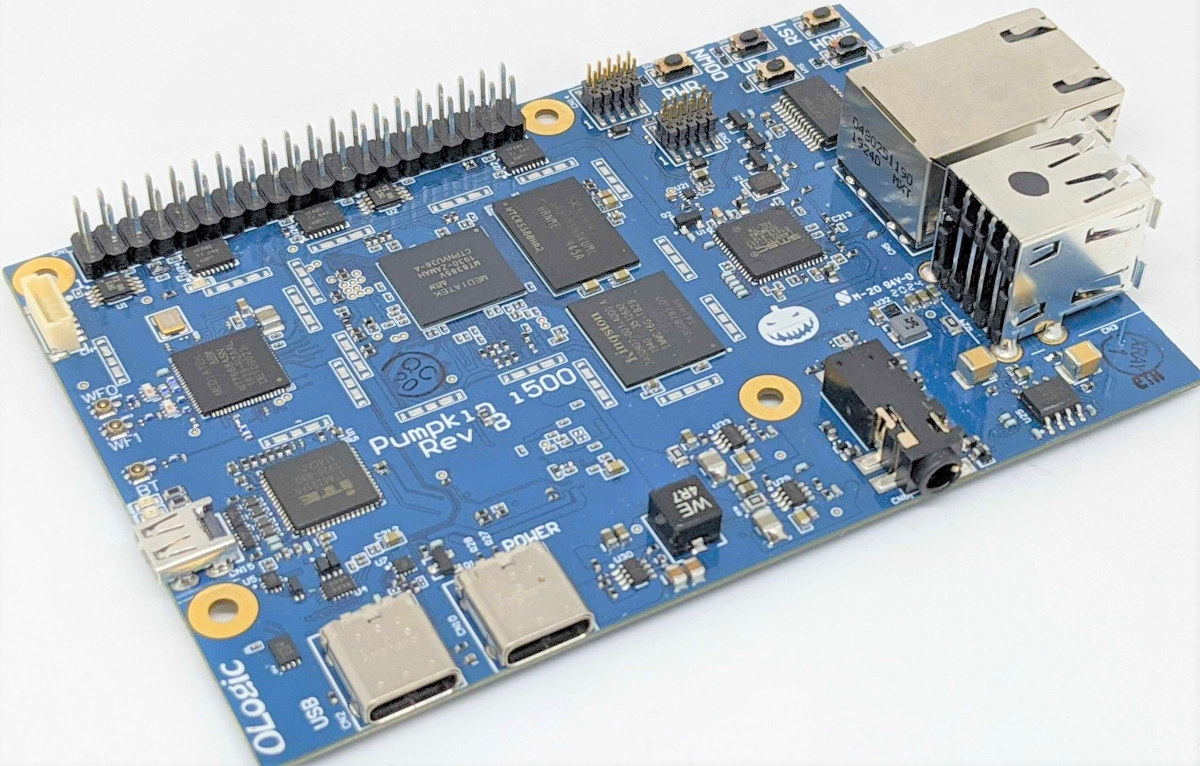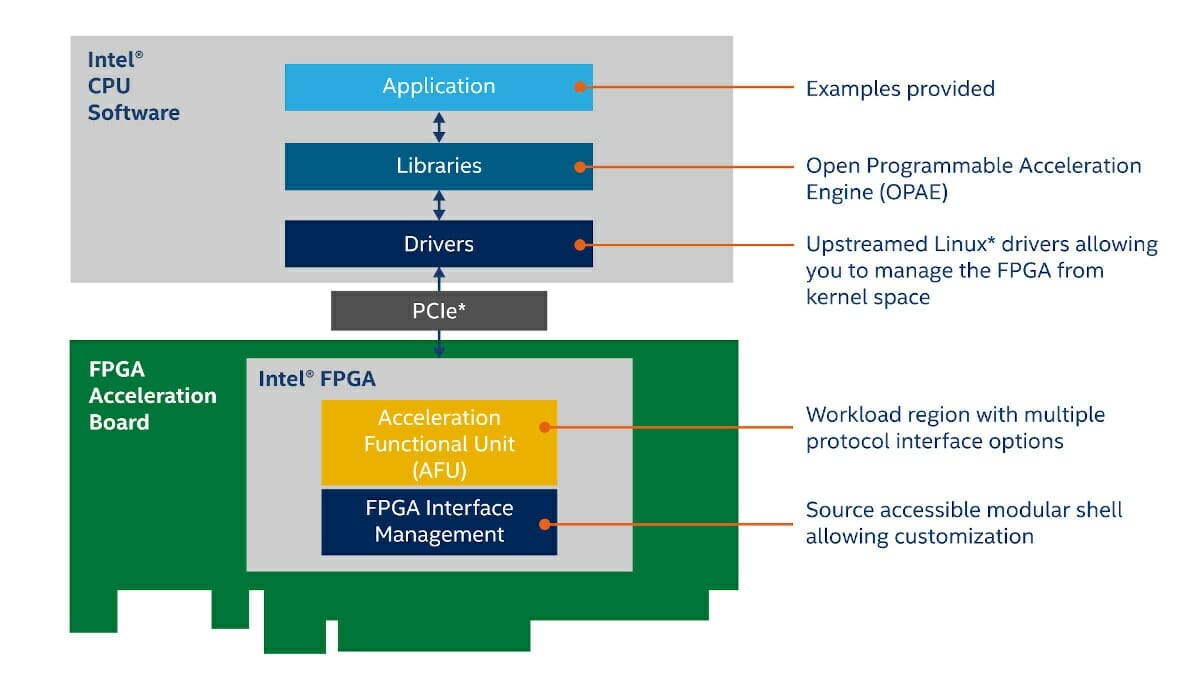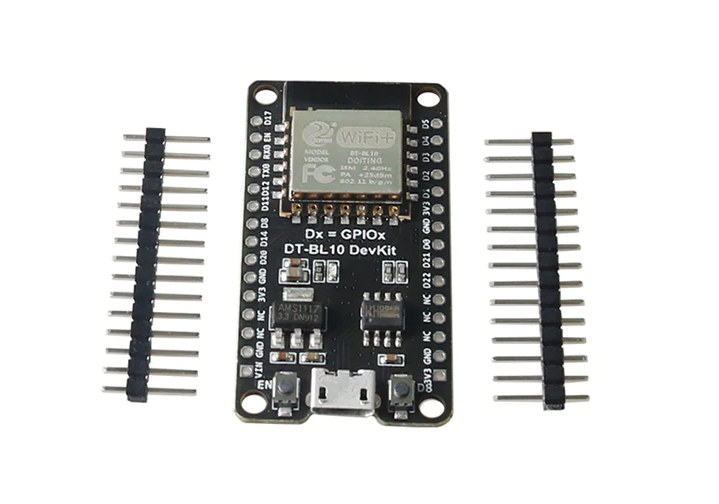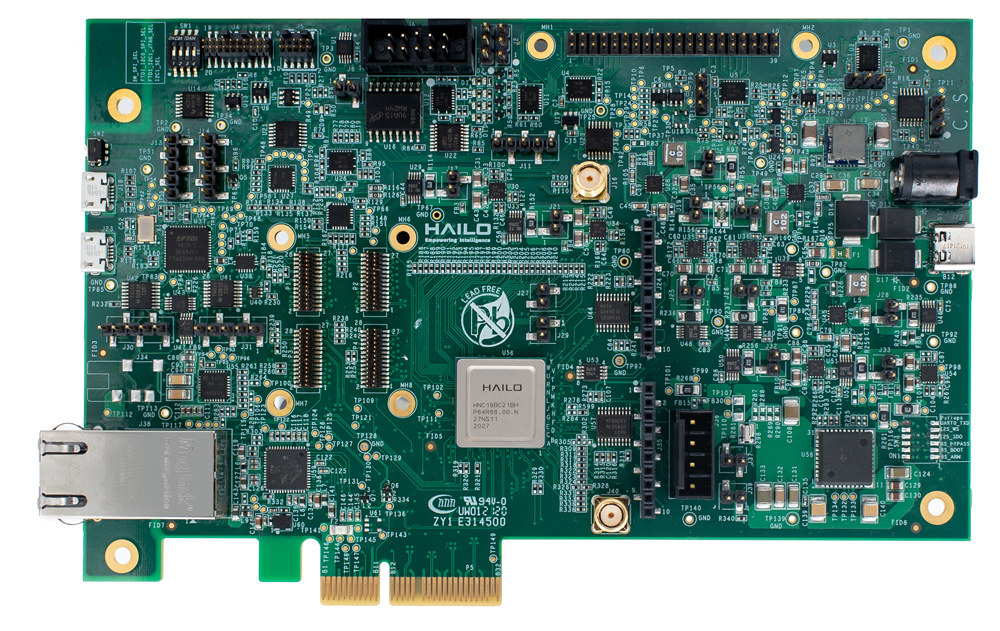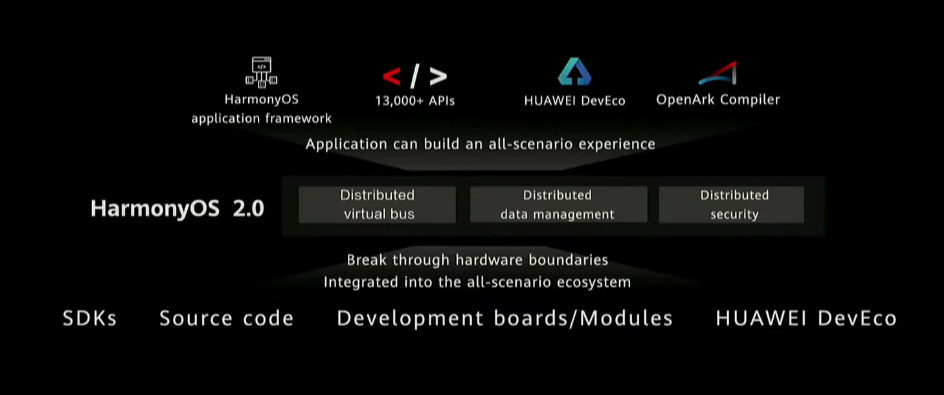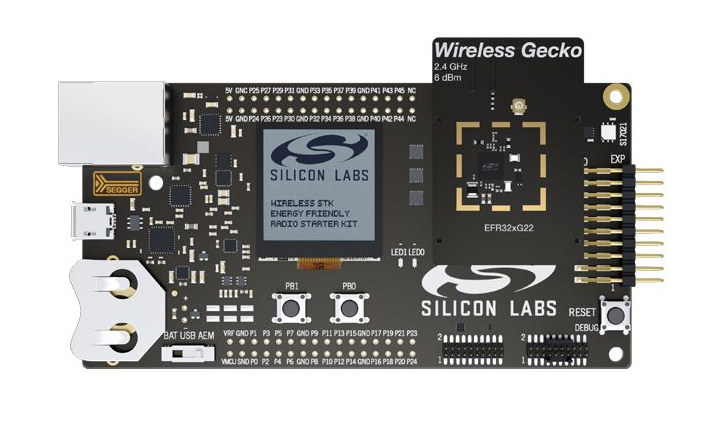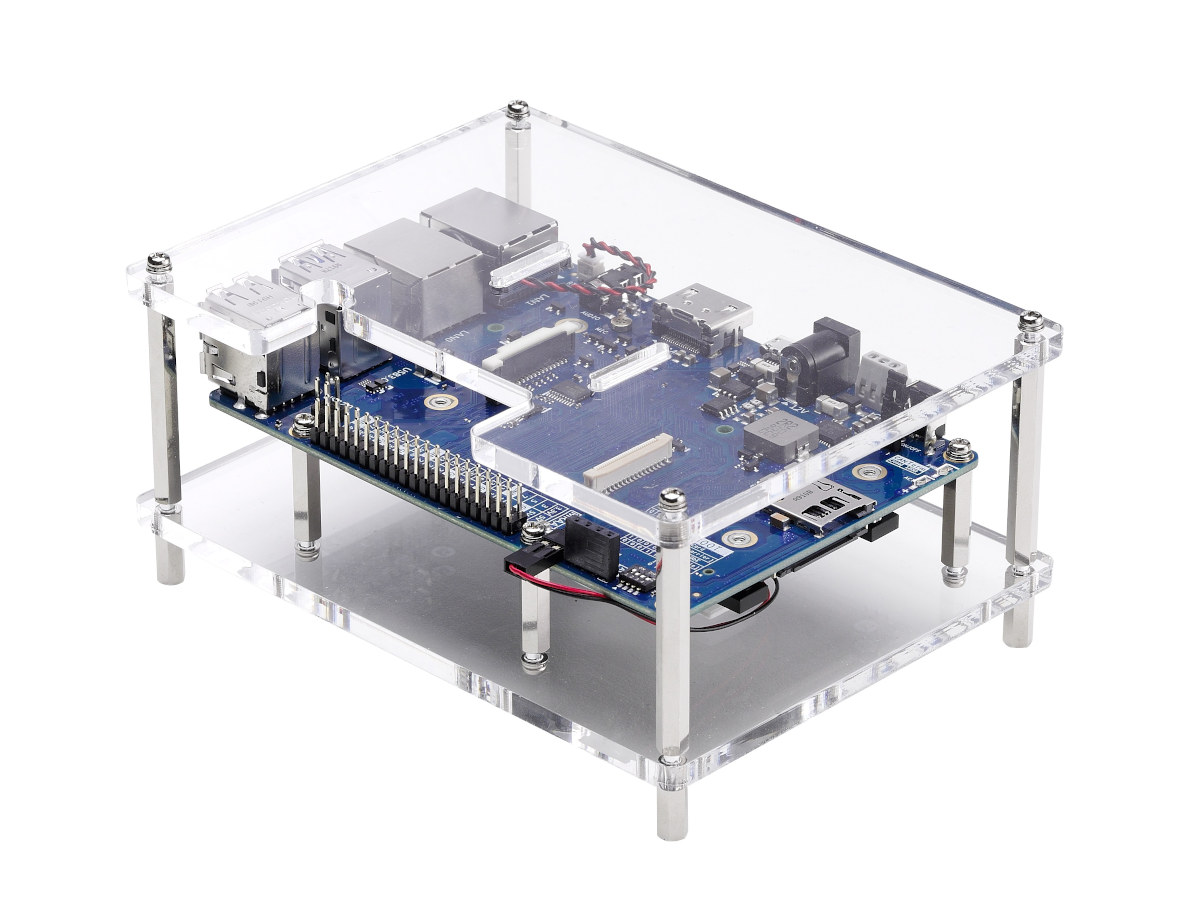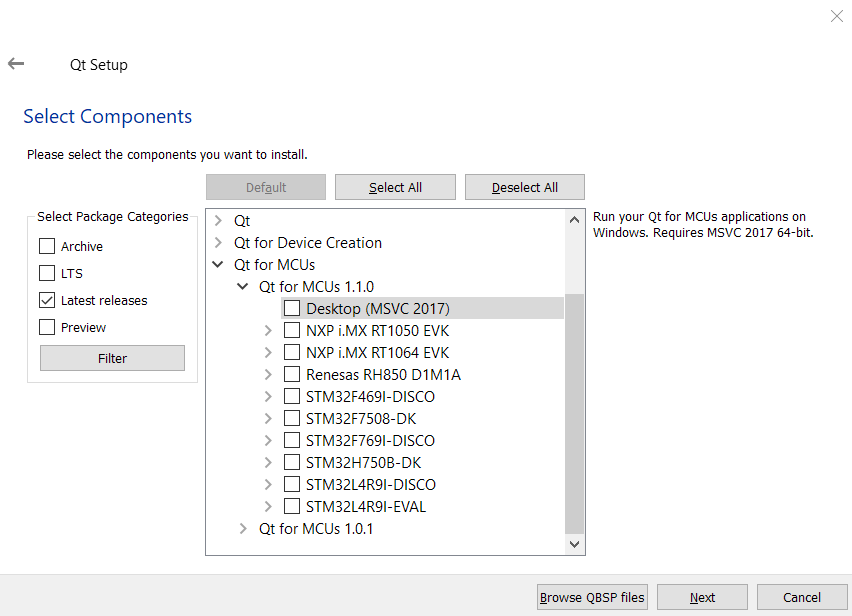MediaTek Rich IoT SDK v20.0 was released at the beginning of the year together with the announcement of Pumpkin i500 SBC with very few details except it would be powered by MediaTek i500 octa-core Cortex-A73/A55 processor and designed to support computer vision and AI Edge Computing. Pumpkin i500 hardware evaluation kit was initially scheduled to launch in February 2020, but it took much longer, and Seeed Studio has only just listed the board for $299.00. We also now know the full specifications for Pumpkin i500 SBC: SoC – MediaTek i500 octa-core processor with four Arm Cortex-A73 cores at up to 2.0 GHz and four Cortex-A53 cores, an Arm Mali-G72 MP3 GPU, and dual-core Tensilica Vision P6 DSP/AI accelerator @ 525 MHz System Memory – 2GB LPDDR4 Storage – 16GB eMMC flash Display – 4-lane MIPI DSI connector Camera – Up to 25MP via MIPI CSI connector Video Decoding – 1080p60 […]
Intel unveils eASIC N5X Structured ASIC, and the Open FPGA Stack
Intel’s virtual FPGA Technology Day 2020 is taking place today, and the company made two announcements before the event. First, the company introduced the new Intel eASIC N5X structured eASIC family with an Intel FPGA compatible hard processor system to design to quickly create applications across 5G, artificial intelligence, cloud, and edge workloads. In addition, Intel also announced the Intel Open FPGA Stack (aka Intel OFS), a scalable, open-source (intel calls it “source-accessible”) hardware and software infrastructure available through git repositories design to ease the work of hardware, software, and application developers. Intel eASIC N5X eASIC N5X is the first structure ASIC from the company to integrate an Intel FPGA compatible Quad-core Armv8 hard processor system. The new chips will help customers bring custom solutions faster to market compared to traditional ASICs thanks to the FPGA fabric, and at a cheaper cost and with up to 50% lower core power […]
BL602 IoT SDK and $5 DT-BL10 WiFi & BLE RISC-V development board
Yesterday, we wrote about Bouffalo BL602 32-bit RISC-V WiFI and Bluetooth LE wireless SoC that should eventually compete with ESP8266 in terms of price but with more features, higher performance. and more resources like memory and storage. At the time, I noted I could not find any tools for the processor, but I was informed a BL602 SDK (Doiting_BL) and documentation had already been released on Github. The basic readme and a user manual are already available in English, but the main documentation is still in Chinese with various examples to configure GPIO, YART, WiFi, and Bluetooth. You’ll find the documentation in Github, as I could not find a website yet:
|
1 |
git clone https://github.com/SmartArduino/Doiting_BL |
Go to Doiting_BL/docs/html folder and then open index.html in your browser to access the documentation. The SDK works both in Windows and Linux and relies on either Eclipse & OpenOCD or Freedom Studio & OpenOCD. A graphical software […]
Learn more about Hailo-8 AI accelerator and understanding AI benchmarks
Last week we wrote about Hailo-8 M.2 card delivering up to 26 TOPS of AI performance, and comparing well against Google Edge TPU and Intel Movidius Myriad X both in terms of footprint, performance, and efficiency. I’ve since then had a conference call with Liran Bar, VP of Business Development for Hailo, where we had time to discuss more about Hailo’s AI solutions, and how to interpret & understand AI benchmarks that may be misleading in many instances. Hailo-8 Architecture In the first post, we noted the chip managed to get the extra performance and efficiency thanks to a “proprietary novel structure-driven Data Flow architecture instead of the usual Von Neumann architecture”. But that’s a bit abstract, so Liran told me one of the key reasons for the performance improvement is that RAM is self-contained without the need for external DRAM like other solutions. This decreases latency a lot and […]
HarmonyOS 2.0 Beta Released, HarmonyOS Devices Coming in 2021
Due to geopolitical tensions, Huawei cannot rely on Google Android operating system over the long term, and in May 2019 we reported HongMeng OS may become Huawei’s OS alternative to Android. HongMeng (鸿蒙) OS will finally be called HarmonyOS outside of China, and we recently reported Huawei was trying to attract more developers with monetary incentives to brings more apps to HMS (Huawei Mobile Services). We now have a more clear timeline with the company’s recent release of HarmonyOS 2.0 beta that’s currently available for smart home applications, smartwatches, and head-on-displays, and will become available for smartphones in December 2020. The release includes SDKs with over 13,000 APIs, documentation, tools, and simulator/emulator. OpenArk is an open-source compiler that was released last September, and Huawei DevEco is the IDE for development that works on top of Android Studio. Huawei also introduced OpenHarmony which should be the equivalent of the Android Open […]
$99 EFR32xG22 Wireless Gecko Starter Kit Offers Low-Cost Zigbee Development Platform
Silicon Labs has just launched a low-cost Bluetooth, Zigbee, and proprietary wireless development kit with the $99 EFR32xG22 Wireless Gecko Starter Kit (WSTK). This WSTK includes two +6 dBm radio boards, matching network, and PCB antennas for +6 dBm output power in the 2.4 GHz band, as well as on-board J-Link debugger. Previously you had to purchase the $479 EFR32xG21 Wireless Gecko Starter Kit to get access to the Zigbee SDK in order to get started with development, and the new starter kit makes it possible to get access to the same software resources and documentation for around $100. EFR32xG22 Wireless Gecko Starter Kit (SLWSTK6021A) content, key features & specifications: BRD4001A Wireless Starter Kit Mainboard WiSoC – Wireless Gecko Series 2 Arm Cortex-M33 @ 80 Mhz Display – Low-power 128×128 memory TFT LCD Connectivity – Ethernet port USB – 1x Micro USB port for programming and power Debugging Advanced Energy […]
ROScube Pico SBC Runs Ubuntu & ROS on Intel Atom or Rockchip PX30 Processor
ADLINK has launched ROScube Pico SBC designed for robotics projects and powered by either an Intel Atom x5 Apollo Lake processor or a Rockchip PX30 Arm Cortex-A35 processor via their SMARC-compliant system-on-modules namely LEC-AL and as LEC-PX30. Both models run Ubuntu and ROS/ROS-2 operating systems simultaneously, and the company also provides NeuronBot robotics development and demo kit based on the SBC. ROScube Pico SBC and Devkit If ROScube Pico looks similar it’s because it appears to be based entirely on ADLINK previously announced ADLINK Industrial-Pi (I-Pi) SMARC Development Kit based on Rockchip PX30, and Vizi-AI development starter kit based on Atom x5-E3940 SoC and Movidius Myriad X VPU. Those are the specifications listed for ROScube Pico: SMARC Module For ROScube Pico NPS-1 – LEC-AL with Intel Atom processor, Intel Movidius Myriad X AI accelerator, 8GB LPDDR4 RAM, 32GB eMMC For ROScube Pico NPS-4 – LEC-PX30 with Rockchip PX-30 quad-core Cortex-A35 […]
Qt for MCUs 1.1 Adds Support for more STM32 and NXP i.MX RT Boards, FreeRTOS
The first stable version of Qt for MCUs was released in August 2019 in order to bring Qt graphical toolkit to microcontrollers such as STMicro STM32F7, Renesas RH850, or NXP i.MX RT1050. Qt for MCUs would run bare metal on supported boards, and software engineers would develop graphical interface using QML and C++. Qt for MCUs 1.1 has just been released with the addition of more STM32 and i.MX RT boards, support for FreeRTOS real-time operating system, and more. Qt for MCUs 1.1 highlights: Five new supported boards: NXP i.MX RT 1064 EVK, STM32 H750B-DK, STM32 F469i-disco, STM32 L4R9i-disco, and STM32 L4R9i-eval Asset management Optional PNG compressions for assets to lower storage footprint Option to read data directly from flash memory for lower RAM consumption, or copy to RAM for better performance, at the cost of higher RAM consumption. FreeRTOS support (technology preview) to run background tasks without blocking the […]


